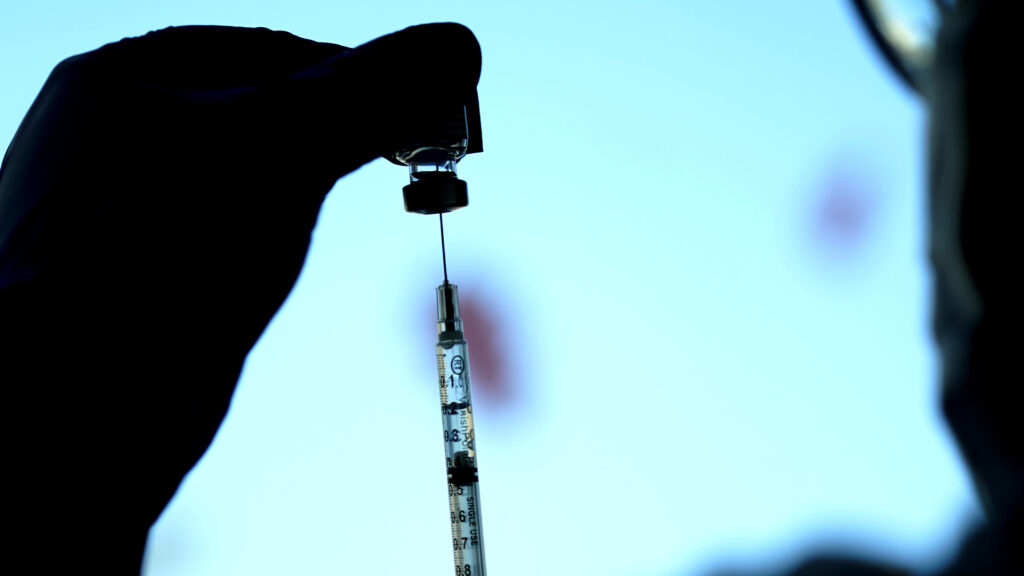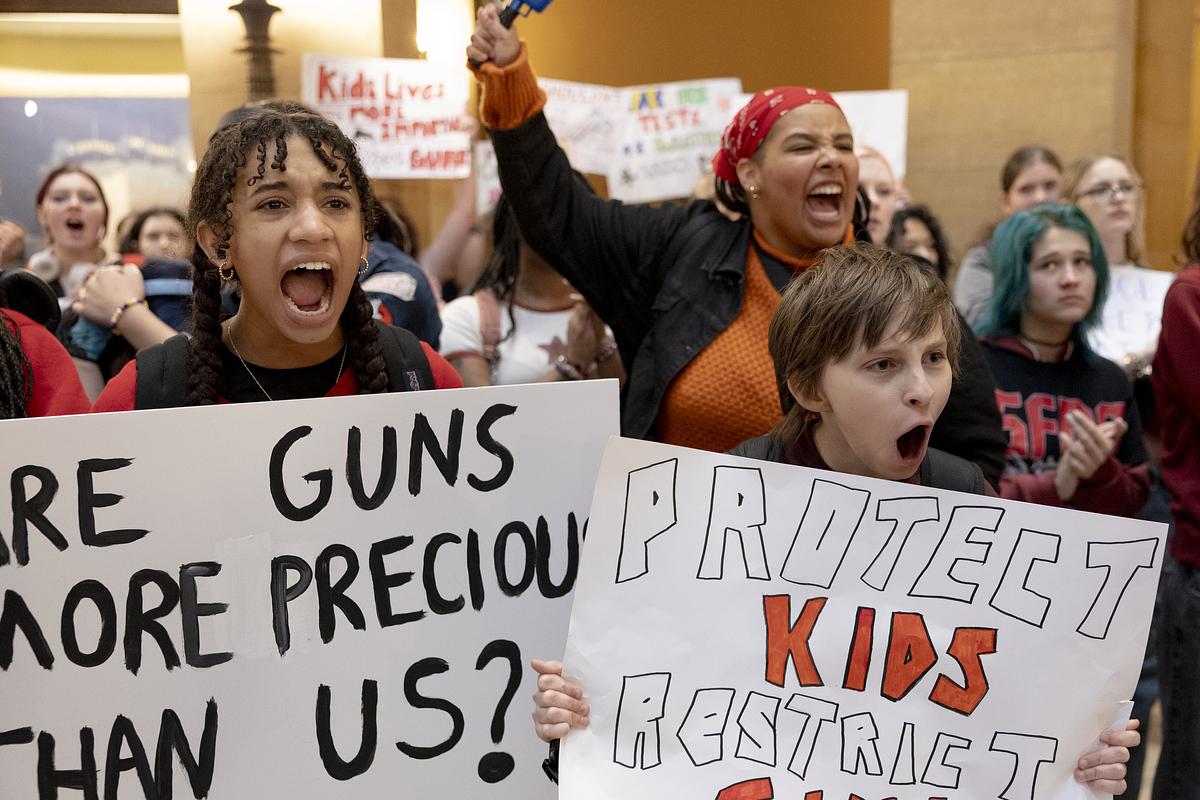
America’s vaccine policies are facing their most serious crisis in decades. Florida plans to eliminate school vaccine mandates, making it the first state to abandon policies that have anchored America’s immunization governance since the 1960s. Meanwhile, health secretary Robert F. Kennedy Jr. has purged the CDC’s vaccine advisory committee and thrown national health institutions into disarray. The agenda for this week’s meeting of the Advisory Committee for Immunization Practices includes review of recommendations for vaccines against measles, mumps, rubella, chickenpox, hepatitis B, and Covid-19. We’re witnessing the dismantling of the infrastructure that has protected Americans from preventable diseases for over half a century.
As scholars of vaccine mandates, we saw this crisis coming. We warned that efforts by well-meaning Democratic policymakers in the 2010s to tighten school vaccine mandates, along with the Covid-19 pandemic control measures that ushered in the 2020s, could create substantial political backlash. That backlash has arrived, and its effects are spreading quickly. When California eliminated nonmedical exemptions in 2015, it transformed vaccine mandates from nudges into coercive tools. Other blue states followed suit, politicizing previously stable, bipartisan policies.
Advertisement
Of course, other factors contributed to today’s vaccine politics, including the Republican Party’s embrace of conspiracy theories and its reflexive opposition to Democratic policy priorities. But the backlash against Democratic overreach in tightening school vaccine mandates remains an important, often overlooked part of the story.
Now, Republicans have become the party of vaccine refusal, and their policies are growing increasingly radical. Other Republican-controlled states will likely follow Florida’s lead. We may soon face a patchwork of immunization governance across the country, where children’s protection against vaccine-preventable diseases will depend on where they live. The immediate consequence would be a fragmentation of our immunization social order.
As federal authorities such as ACIP, the CDC, and the FDA retreat from approving, recommending, and funding vaccines, the responsibility for disease control will not vanish but shift. This burden will fall on everyone, but it will weigh most heavily on people in Republican-led states, where school and daycare mandates will also be at risk, and where state and local programs promoting access and acceptance of vaccines may be curtailed. In such an environment, the responsibility for managing vaccination will increasingly fall to private actors. Employers may set their own vaccine rules to protect staff and clients. Some private schools and daycares will try to preserve vaccine mandates, possibly relying on religious liberty laws, even when the law prohibits such policies.
Advertisement
Families will find themselves negotiating vaccination in the most ordinary parts of life, much as they did during the pandemic. Parents may decide their children cannot play with unvaccinated classmates. And grandparents, especially those who are immunocompromised, may demand that their grandchildren be vaccinated before they babysit. Holiday gatherings, birthday parties, and family vacations could turn into debates about which family members are safe to be around.
In short, what once felt like settled public policy will instead play out through a set of private decisions, shaped by diverse sets of resources, values, and social pressures.
The effects of a patchwork system of privatized vaccine governance will not be felt evenly. Vaccine refusers often come from white, wealthy communities, but almost everyone in these communities still vaccinates, drawing upon higher levels of educational attainment and taking advantage of better access to health care. These wealthy communities will be able to maintain higher vaccination rates through private requirements and social pressure.
But poor and working-class communities, who are already struggling with health care access, will see coverage plummet after government retreats from its role in mandating vaccination. It is in these communities where individuals are also more at risk from misinformation about vaccines, especially when it comes from the government.
The human costs are already mounting. Measles cases have exploded in 2025, and we recently saw measles deaths in America for the first time in a decade. Kindergarten vaccination rates are at dangerous levels; in Florida only 89% of children met school vaccination requirements. This is far from the 95% threshold needed to prevent outbreaks. And, when more states follow Florida’s lead, we should not be surprised to see the return of diseases like polio that previous generations thought they had well controlled.
As the system breaks apart, families and institutions will face new responsibilities. The current administration has devastated FEMA’s ability to respond to natural disasters, leading families in disaster-prone areas to stock up on extra emergency supplies. Now, families and other groups need similar strategic thinking to protect their communities when federal and state governments abandon immunization promotion.
Advertisement
Health care providers should prepare to provide additional vaccine education and counseling. Without the nudge of school requirements, even more of the burden of vaccine promotion will fall to pediatricians, family medicine physicians, and other primary care providers. These clinicians will need more time and more training to effectively address vaccine hesitancy.
Local health departments, schools, and religious organizations will have to shoulder more of the burden by creating education campaigns, ensuring vaccine access, and preparing for outbreaks, often without help from above. This may seem like asking too much, but the alternative is too dire to do nothing.
Individual families need to become more sophisticated consumers of vaccine information and more intentional about their social choices. This means understanding the vaccination status of their children’s friends, advocating for school policies that protect their children, and making vaccination a criterion for childcare and social arrangements.
Part of the task facing policymakers, scholars, and commentators will be to reckon with how we got here. In part, the mandate abolition movement is a backlash against the medical and public health communities’ increasingly hardline approach to vaccine refusal. When physicians dismiss hesitant families from their clinics, and when states refuse to grant nonmedical exemptions that allow unvaccinated children to attend school, they undermine the very goals they presume to be pursuing.
We will not be able to restore the old system. Once the immediate battles have subsided, the harder work will remain: rebuilding trust and building institutions that people can believe in. This means acknowledging past mistakes, being more open about how vaccines are made and approved, and actually listening to what communities are worried about.
The path forward will be difficult, but the collapse of the old system also creates an opening. If we act quickly, we can start planning for a better future, before a generation of children grow up vulnerable to diseases their grandparents thought were gone.
Advertisement
Mark C. Navin is professor of philosophy at Oakland University in Rochester, Minn., and clinical ethicist at Corewell Health. Katie Attwell is a professor of political science at the University of Western Australia.



